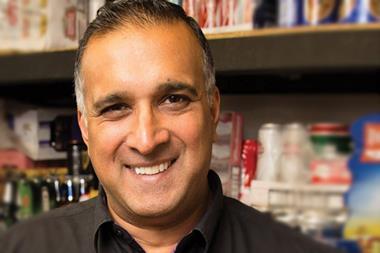Retailers have begun to consider the measures they will have to take to absorb rising employment costs after the chancellor’s decision to increase the National Living Wage (NLW) to £7.50.
In the Autumn Statement at the end of last month, chancellor Phillip Hammond announced that the NLW would rise by 4% to £7.50 per hour for workers aged 25 and over from April next year, one year on since last April’s increase to £7.20 per hour.
Harry Goraya, owner of Rosherville Post Office in Gravesend, Kent, said: “We will have absorbed the costs as a result of forward planning, as we lost two members of staff last time around when we absorbed costs and now we have the minimum amount of staff that we need. But there is a danger that the rate will go up again and, along with rates and product inflation, it is becoming very tough.
“We don’t want to put prices up because we have a great relationship with our customers and a high level of trust and we want to stay competitively priced.”
Harry added: “We are looking at means to boost our income and are looking at bringing in a food-to-go service next year along with other ideas to try to bring in that additional income.
“The government’s living wage plan fails to reflect the bigger picture.”
Conrad Davies, owner of five Spar stores in the North of Wales, said: “We made cost- cutting decisions last time around to safeguard against future increases. We employ 130 people and we had five redundancies last time.
“I dread to think how businesses are going to cope if the NLW rises to as much as £9, it is unbelievable. This means that some stores simply won’t be able to afford to compete or invest.”
The government’s target is to raise the National Living Wage to 60% of median hourly earnings, as high as £9.30 an hour, by 2020 for workers aged 25 and over.
OPINION
“Our staff and customer service are a vital part of our businesses - if the wage rises to £9, this will suffer as a result. The wage increase is irresponsible, it is damaging small businesses.”
Sid Ali, owner of four Nisa stores in Aberdeenshire
“For us the cost will probably have to be absorbed by reducing staff hours or passing some of the cost on to the consumer. It isn’t ideal, but it is necessary.”
Dee Sedani, One Stop, Matlock, Derby.






















2 Readers' comments